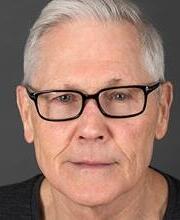Michael C. Carroll

The B cell receptor (BCR) is essential for survival of mature B cells and its specificity dictates the cells' fate from early development through final differentiation into an effector or memory cell. For example, immature B cells bearing a self-reactive BCR may be eliminated in the bone marrow (check-point I) or spleen (check point II). Escape at either checkpoint could result in autoimmune disease. A long-standing interest of the Carroll lab is how B cells encounter antigens, both self- and non-self, and how the local environment influences the outcome.
Antigens are“presented”to B cells in large part by follicular dendritic cells (FDC) via a pathway dependent on complement C3 and receptors CD21 and CD35. Antigen recognition by antibody or pattern recognition receptors such as the C-type lectins can activate complement resulting in covalent attachment of the third component (C3) to the antigen. Activated C3 provides a molecular tag that identifies the antigen as foreign. C3-tagged antigens are transported to FDC via cells bearing complement receptors. By a mechanism that is not clear, foreign antigens are retained in their native form and made available to cognate B cells over extensive periods. Whether a similar pathway is involved in “presenting” self-antigen to immature B cells is not known.
In summary, understanding how foreign antigens are made available to B cells at varying stages in their differentiation would be useful in the design of vaccines and programming of an optimal humoral response to specific pathogens. Similarly, disrupting B cell access to self-antigen would be desirable in tuning-down the humoral response in autoimmunity.
Contact Information
200 Longwood Ave.
WAB, Room 251
Boston, MA 02115
